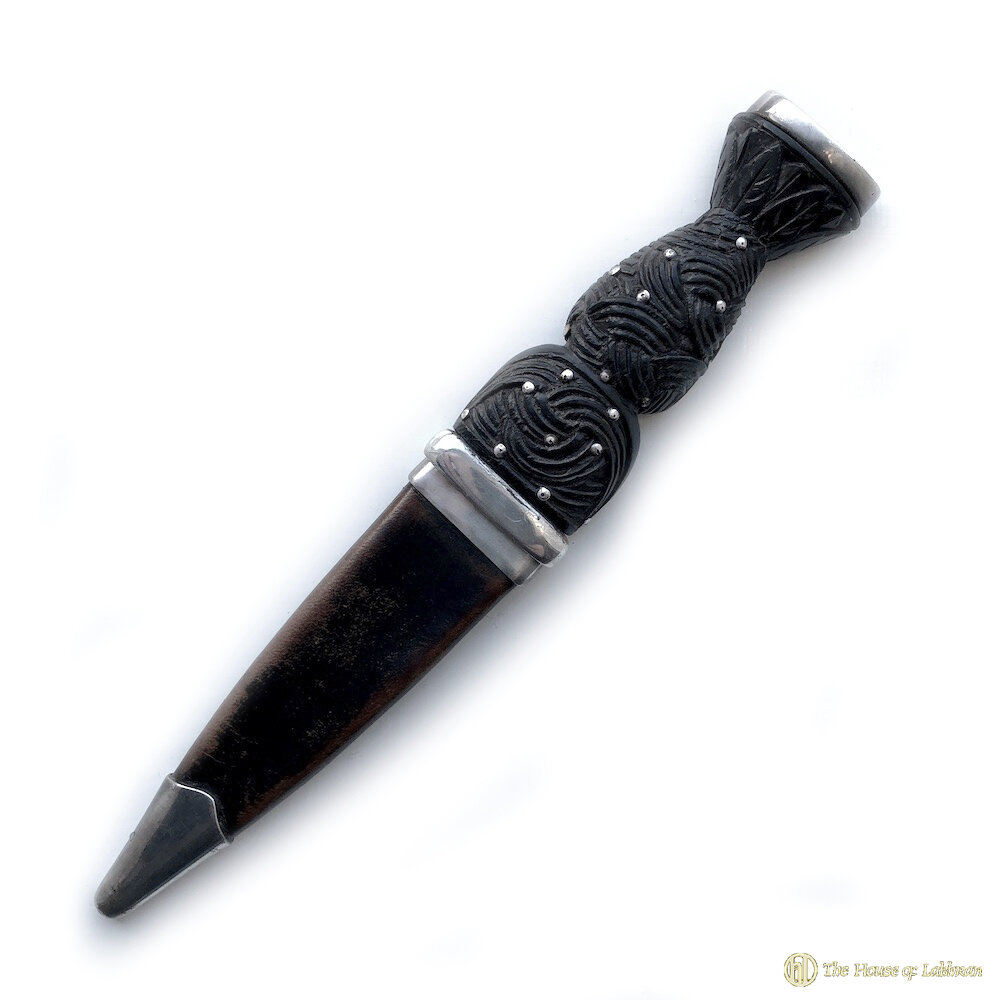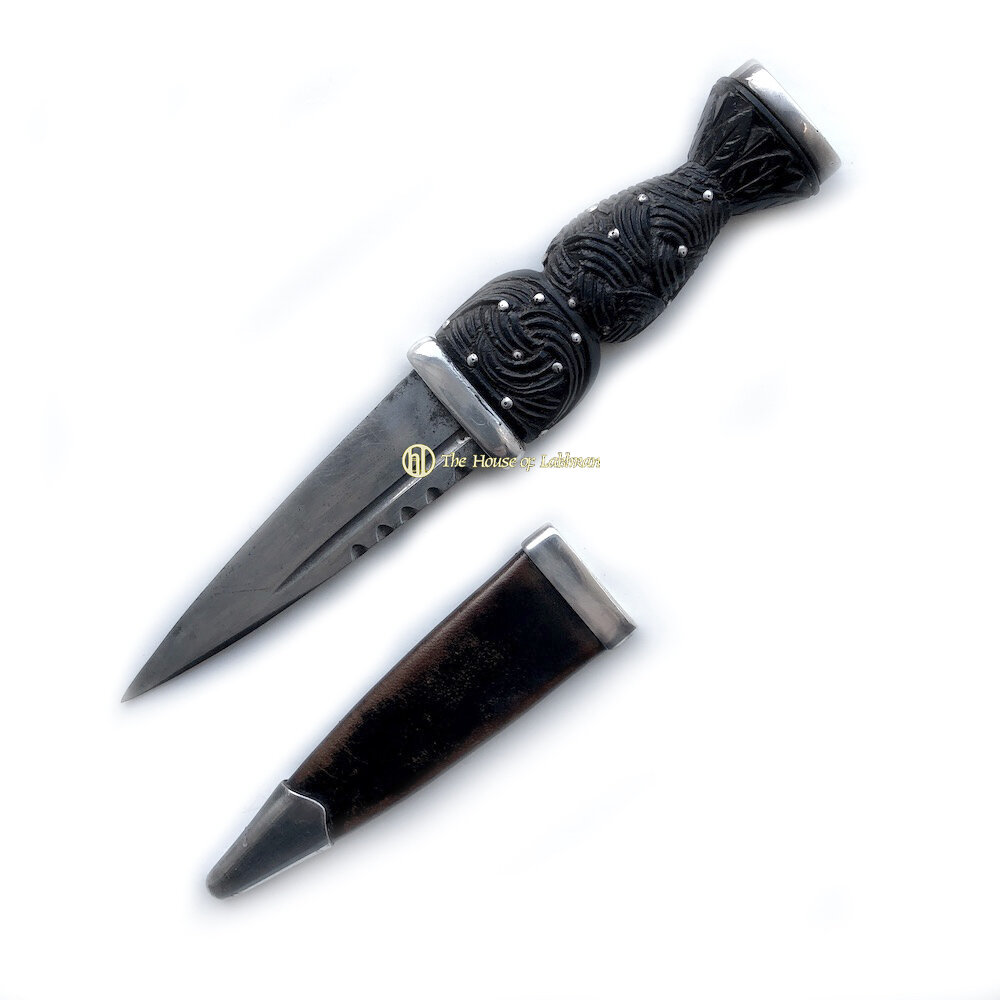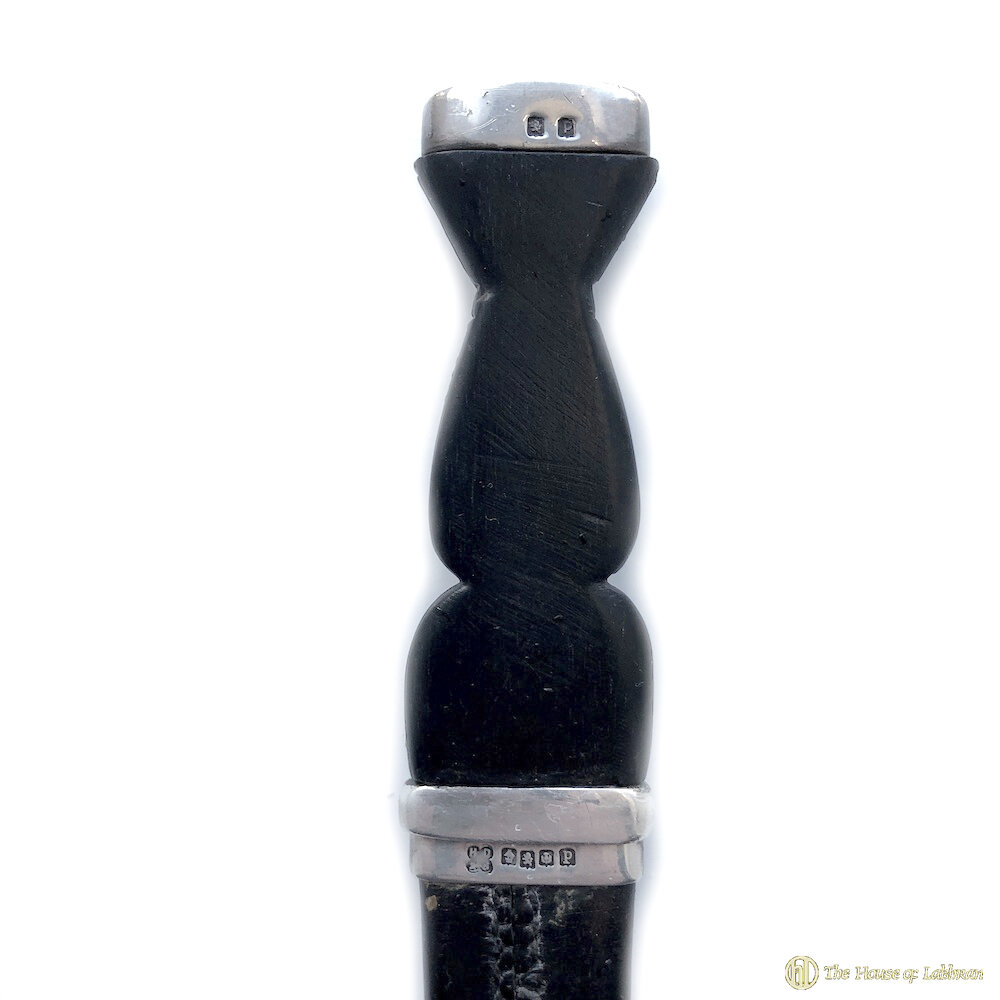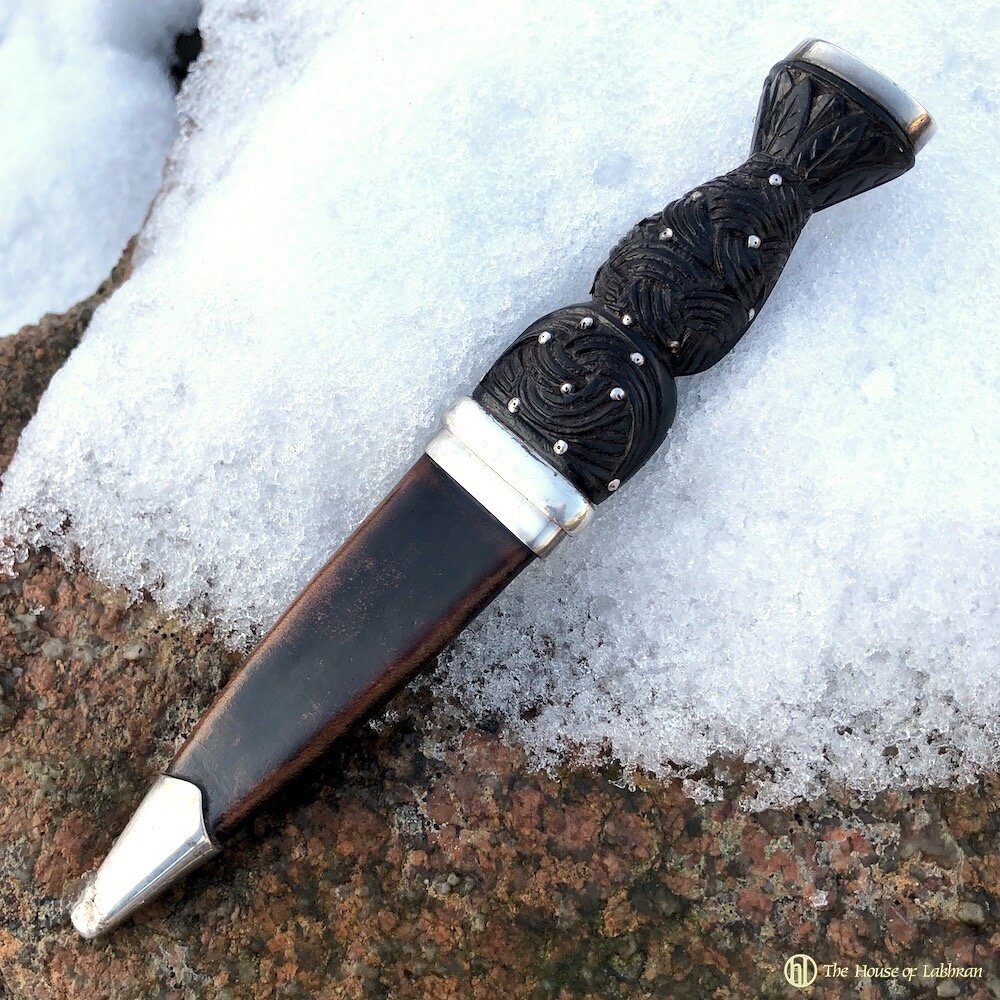Vintage Falconer & Son Glasgow Silver Sgian Dubh
We have just come across an exquisite vintage Scottish sgian dubh treasure. This beautifully crafted sgian dubh features a meticulously carved black wood hilt adorned with studs by H D Falconer & Son (Henry Drummond Falconer) from Glasgow. Its elegant design includes a simple silver cap top and sleek silver hallmarked mounts. The leather scabbard has acquired a luxurious patina over time.
H D Falconer & Son, a renowned silversmith company, was highly esteemed for their exquisite craftsmanship in creating an array of silver pieces. Specializing in crafting silver Quaichs, trophies, and sgian dubhs, their workshop nestled in the heart of 1 Dunblane Street, Glasgow, stood as a symbol of their dedication to traditional Scottish Highland craftsmanship.
Henry Drummond Falconer was born on the 24th of March 1876 in Newington, Edinburgh. After immigrating to the United States of America with his family in 1882, he later relocated back to Scotland. By the 31st of March 1901, he was recorded in the census as a silversmith staying at 28 Wilton St, Kelvinside, Glasgow with Robert and Jemima Watson. This relocation marked a significant chapter in Falconer's life journey.
25 June 1902 Henry was married to Margaret Wright Duncan at St James Hall, Gardner St, Milton, Glasgow
By the 2nd April 1911 Henry and Margaret Wright were living at 77 Walter St, Dennistoun, Glasgow with their children: Henry 8, James 4, Andrew 2 and Alexander under 1 year old. Henry D was listed as employed as a master silver and goldsmith.
Henry started his own company which his son later joined and they became.
H D Falconer & Son Co Ltd
Silversmiths
1 Dunblane Street, Glasgow
Henry Drummond Falconer passed away on the 25th of November 1950 at 192 Killin St, Shettleston, Glasgow, Scotland, at the age of 74. The most recent hallmark date available for the company is from 1949.
Antique & Vintage Scottish Sgian Dubhs
We are deeply devoted to the exquisite beauty of fine antique and collectible sgian dubh’s and Highland dirks. Our collection showcases a variety of styles, including the antique Jacobite designs of the 18th century, the ornate high Victorian patterns, and the distinguished regimental styles from WW1 to WW2. Each sgian dubh and dirk we offer is a splendid contribution to the elegance of any Highland dress ensemble.
Our exclusive selection features exquisite hallmarked sterling silver sgian dubhs meticulously crafted by the prestigious Highland regimental silversmith and renowned Royal silversmiths Hamilton & Inches based in the historic city of Edinburgh, Scotland. Additionally, we offer personalized engraving services on a wide range of these remarkable sgian dubhs, perfect for special occasions and meaningful gifts.
The Gaelic sgian dubh meaning “black knife”, where “black” may refer to the usual colour of the handle of the knife. It is also suggested that “black” means secret, or hidden, as in the word blackmail. This is based on the stories and theories surrounding the knife’s origin and the meaning of “Dubh” in Gaelic, in particular those associated with the Highland custom of depositing weapons at the entrance to a house prior to entering as a guest. Despite this practice, a small twin edged-dagger, (‘Mattucashlass’), concealed under the armpit, combined with a smaller knife, (‘Sgian dubh’).




